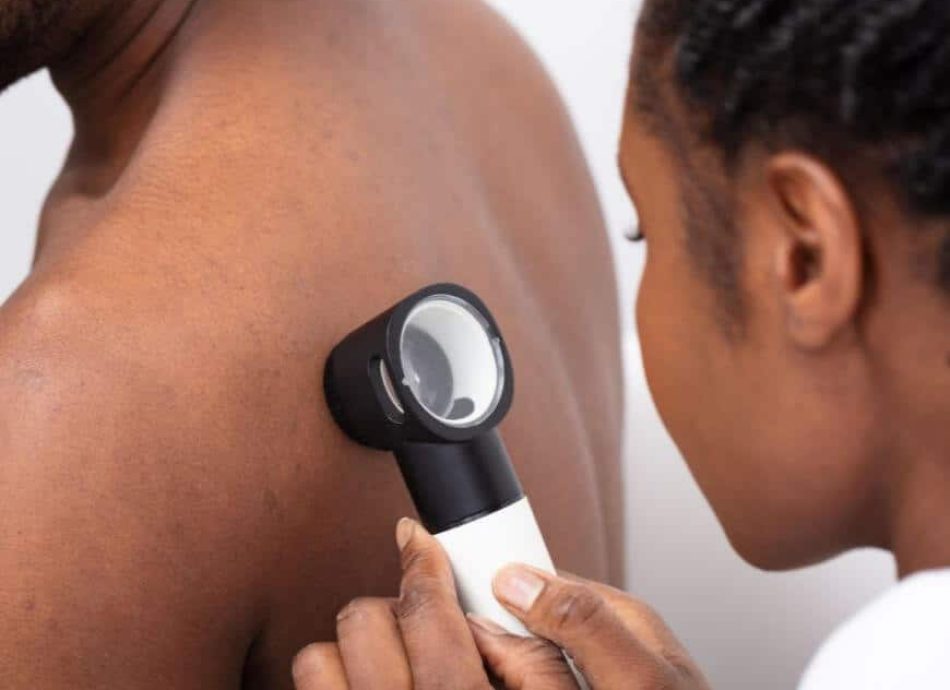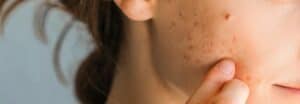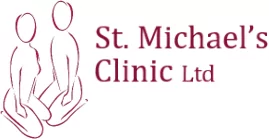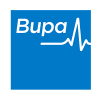Award winning dermatology service, with over 20 years of experience
Short waiting lists, on some occasions offering same week appointments
Safe environment, in Care Quality Commission approved facilities
CONDITIONS WE TREAT WITH MOHS SURGERY
MOHS SURGERY SHREWSBURY, SHROPSHIRE
Mohs surgery, also referred to as Mohs micrographic surgery (MMS), is a special skin cancer removal technique. Mohs micrographic surgery is considered the most effective technique for treating the two most common types of cancers, basal cell carcinomas (BCCs) and squamous cell carcinomas (SCCs) with BCC’s being the most common skin cancers treated by this technique.
Mohs micrographic surgery has increased in popularity due to its high cure rates (99%), low recurrence rates and also offers the best cosmetic results of any skin cancer treatment.
HOW IS MOHS SURGERY DONE?
Mohs skin cancer surgery is usually performed as a day case procedure in the clinic, which means there is no need to stay in the hospital overnight. A Mohs micrographic surgery unit will have an on-site surgical suite/s and a laboratory for microscopic examination of tissue.
We use local anaesthetic around the target area, which means you will be awake during the entire procedure. The use of local anaesthetic versus general anaesthetic provides numerous benefits, including preventing a lengthy recovery and possible side effects from the general anaesthetic. You are completely numb in the area of the surgery, though, so the procedure is painless after the initial injections have been administered.
- Your skin is numbed using a local anaesthetic injection.
- We then remove visible cancer and the removed tissue is examined under a microscope to see if there are any cancerous cells remaining on the skin or if it has all been removed. This takes around 45-60 minutes. We will ask you to sit in the recovery area while you are waiting.
- If there is any cancer remaining, we will bring you back into the theatre and the surgeon will precisely remove some more tissue and then once more check it under a microscope.
- We repeat this cycle until all of the cancer has been fully removed.
You will have a dressing over your wound that will stay in place for 2 – 7 days. Most patients return to the Dermatology Department to have their sutures removed one week later. In most cases, you will feel quite well after 48 hours though may not wish to return to work for 1 week once we remove the sutures. We perform the operation under local anaesthetic, as a result, you may feel quite tired afterwards and you should plan a more restful 2 days or so after surgery.
If you smoke you should avoid smoking for at least 3-4 days before and after surgery as smoking slows down the wound healing process. Similarly, try and avoid alcohol for 3 – 4 days before and after surgery as this can make your wound bleed more.
WHAT ARE THE BENEFITS OF MOHS SURGERY?
This type of surgery is different from other forms of surgery in that it allows the immediate and complete microscope examination of the skin removed. It is not possible for a surgeon to see the roots of a skin cancer under the skin surface without a microscope. Mohs surgery gives the best chance of cure for non-melanoma skin cancers compared to all other treatments- even if the skin cancer has grown back following previous treatment.
Mohs surgery is also very valuable for preserving normal skin around important sites such as the nose, lips, eyes or ears and keeping the wound as small as possible.
No treatment for skin cancer is 100% effective. Skin cancers can grow back after any type of treatment, but the risk is much lower following Mohs surgery.
Mohs surgery offers the best cure rate for basal cell cancer compared with all other treatments. The risk of a BCC returning after Mohs surgery is around 1-2% (1 or 2 in 100 patients) for a basal cell carcinoma that has never received treatment before.
FREQUENTLY ASKED QUESTIONS
HOW LONG DOES MOHS SURGERY TAKE?
This surgery takes several hours. Because no one can tell how big the cancer will be and what the size of its roots are, we ask you to prepare to stay with us the whole day. There is a team of highly experienced Mohs nurses that will be responsible for your care throughout your stay as well as your surgeon. They will be available to support you through your stay and can answer any questions you may have.
WHAT IS THE RECOVERY OF MOHS LIKE?
Mohs surgery results in a surgical wound the size of which reflects the true size of the skin cancer. Mohs surgeons have extensive training in wound reconstruction and plastic surgery and in most cases the Mohs surgeon will perform the wound repair. There are generally 3 ways to repair a wound:
- Natural healing – Allowing the wound to heal naturally without additional surgery. This is normally only possible in certain sites.
- Stitches – Closing the wound directly with stitches
- Skin graft/skin flap – Using a skin graft or skin flap to repair the wound. Some patients will need to transfer to other hospitals for their repair by eye surgeons, ENT surgeons or plastic surgeons. If this applies to you, we will discuss this with you in the clinic in advance. Unless you are being transferred to another hospital you will normally be able to go home the same day.
WHO WILL CONDUCT MY MOHS SURGERY?
Dr David Veitch is an experienced consultant dermatologist and trained Mohs micrographic surgeon.
REQUEST A CALL BACK
Please fill in this form and one of our team will give you a call back to arrange a consultation with one of our expert dermatologists.

HEAR FROM OUR PATIENTS
WHY HAVE MOHS SURGERY AT ST. MICHAEL'S CLINIC?
Here at St. Michael’s Clinic, Shrewsbury’s leading private skin and laser treatment clinic, our experts are specialists in all aspects of dermatology, skin cancer, anti-ageing and beauty treatments. We are able to offer NHS patients a consultant led dermatology service from our sites in Shrewsbury and Much Wenlock.
St. Michael’s Clinic is regulated by the Care Quality Commission, ensuring the best level of treatment is provided to you in a safe environment. We are part of the Dermatology Partnership, a leading group of dermatology clinics, defined by clinical excellence and focusing on leading dermatological care.
skin cancer INSIGHTS AND ADVICE

The Ultimate Manual to Skin Protection – Deciphering SPF
Using Sunscreen for Optimal Protection Understanding the SPF label on skincare items can feel confusing, especially for those unfamiliar with skincare. Fear not, we’re here to guide you. This comprehensive guide will delve into SPF’s role in skincare, how to select the right SPF and

Exploring Varicose Veins: Recognising, Managing and Preventing
Varicose veins portray themselves as twisted, enlarged veins that can disrupt the allure of your legs and incite discomfort. They are a common concern, specially as we get older. To manage and potentially alleviate the problems they present, understanding varicose veins is essential. In our

Revealing the Truth About Acne: A Comprehensive Review for Acne Awareness Month
June is globally celebrated as Acne Awareness Month, offering a platform to shed light on one of the world’s most universal skin disorders. The main purpose of this month is to emphasise the importance of knowledge, support and accessible remedies for individuals grappling with acne.




